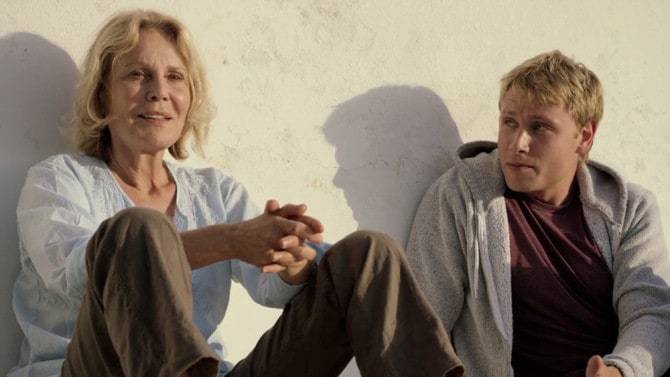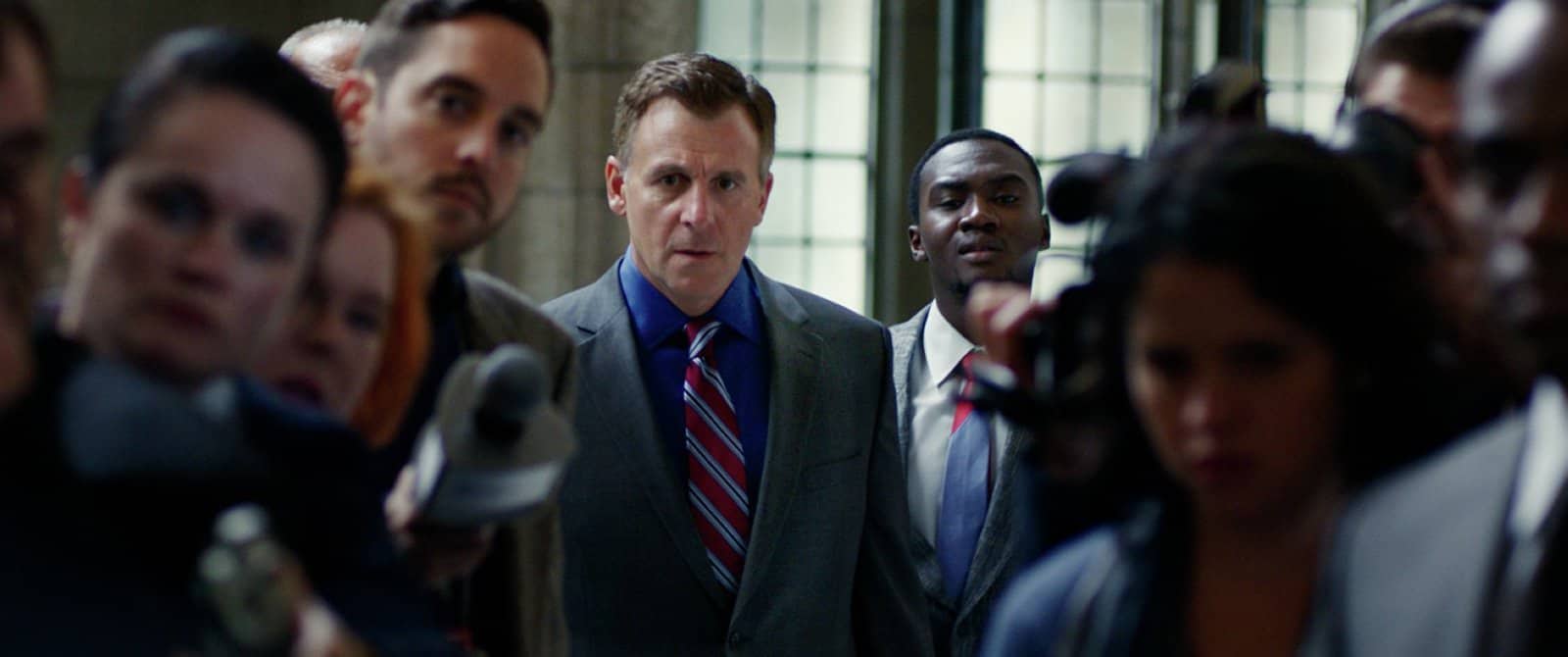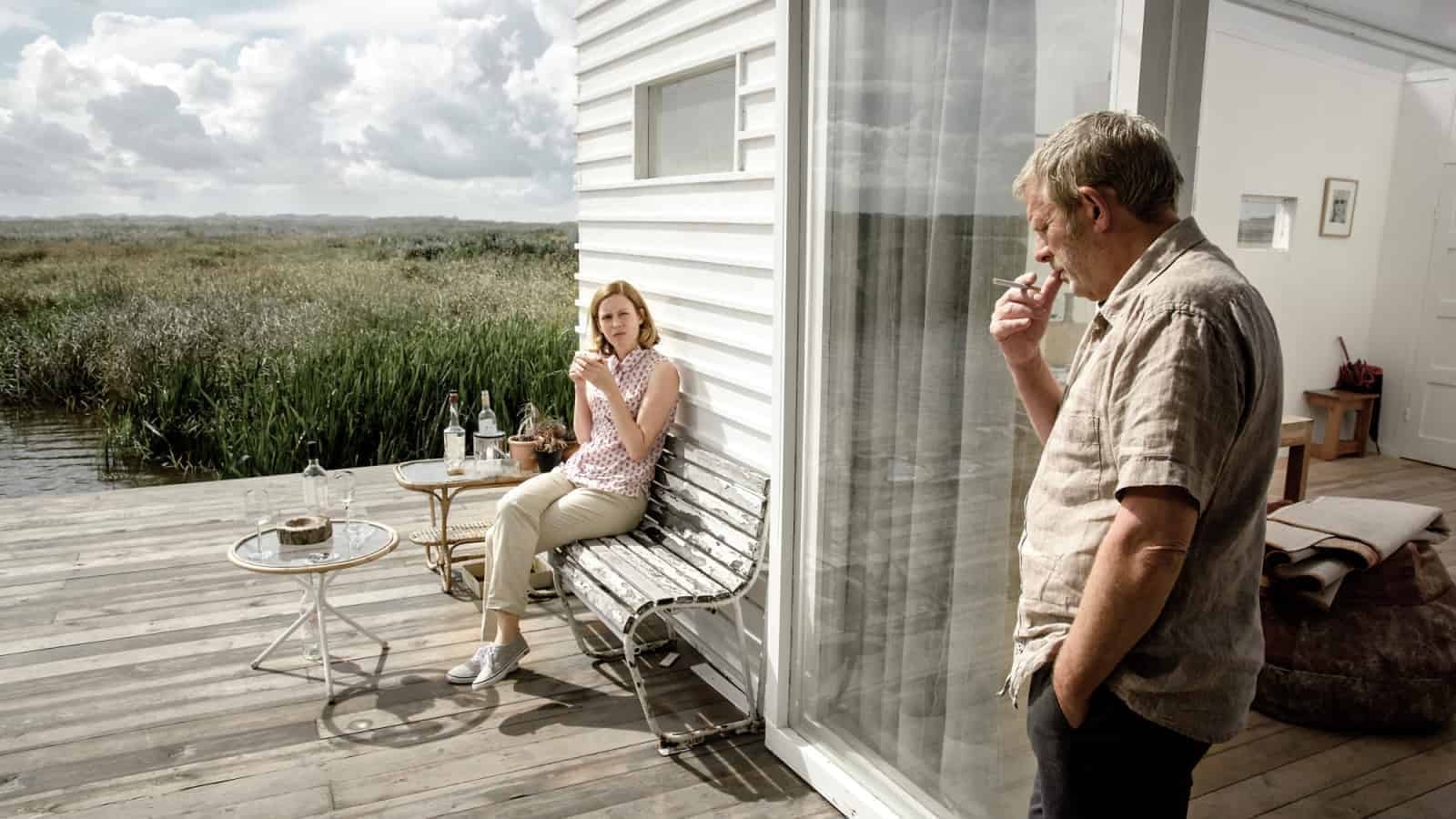
Barbet Schroeder’s Amnesia is the latest in a series of recent films about whether Germany has reckoned with its past from World War II. Set in the early 1990s at another pivotal point in German history, the film looks back into the past through its protagonist Martha (Marthe Keller) and her interactions with other Germans. Rather than focusing on the perspective of the victims of the holocaust and their families, as in the post-war films Hannah Arendt, Phoenix, and this year’s The People vs. Fritz Bauer, Schroeder’s focus is on the German gentiles and their descendants who either sat idly by or directly participated in the atrocities.
Martha is a German expat living in Ibiza, who hasn’t returned home since the beginning of the war when she escaped. For decades, she’s carried around shame and anger regarding her country’s role in World War II. She insists on boycotting German products — she won’t even take a ride in a Volkswagen, a company supported by the Nazis — out of respect for the Jewish victims. Instead of dealing with her country’s past, she’s merely rejected the German part of her identity, as if that absolves her of guilt.
She lives on a paradisal island full of blue skies, sunny days, and gorgeous views, even if she suffers without electricity: it’s the perfect setting for uncovering and facing ugly truths. When she befriends her new neighbour, the twenty-five-year-old German DJ Jo (Max Riemelt), they form an unlikely bond — a romantic, platonic friendship — challenging and supporting each other in equal measure, in a way they both desperately need.
Jo is fascinated by Martha, a sophisticated older woman who dresses casually but sharply and spends her days fishing, reading, and relaxing. He doesn’t understand her strict rules or why she refuses to talk about certain parts of her past, like why she no longer plays her cello which is on display. Every time she tries to explain, without getting too deep into personal history, Jo insists that the war is far in the past, unaware of how it still infects everything. Together, they end up forcing each other to confront their pasts: why she has denied her German identity and why he has denied that the war holds any influence on Germans fifty years later.
The film’s methods are blunt and the dialogue often too obvious. As soon as Jo mentions his beloved grandfather, who took him camping in his childhood, we can do the math: he’s probably got a past with the Nazis, about which his grandson, who calls him heroic, is wilfully ignorant. The film’s purpose is clear from the start, making the role that Jo’s family stories need to play very predictable. When Jo’s mother and grandfather eventually visit him in Ibiza and meet Martha, we expect that some skeletons are bound to tumble out of the closet.
Yet the compassion with which the actors deliver and respond to these revelations is nuanced and emotional. As Jo’s grandfather (Bruno Ganz) finally tells his story, he’s constantly interrupted by his daughter (Corinna Kirchhoff) who is both trying to keep the peace and unable to cope with reality. At first, we think she knows the story and is trying to avoid unpleasantness, but we soon realise she, too, is in denial.
When Jo’s grandfather breaks down in shame at his cowardly actions, it’s humanizing. We can’t see him as a monster, even if he’s done monstrous things — though all Jo can think about is how his relationship with his grandfather has been built on a lie. Schroeder emphasizes Jo’s ugly reaction. He’s unable to understand his grandfather’s conflicted and complicated situation so he simplifies, quick to conclude his grandfather is truly a monster. This insistence on simplifying is what wakes Martha up: she sees the error of Jo’s ways and she’s forced to deal with how similarly she’s behaved. She barely knows Jo’s grandfather, but she can see how difficult his predicament was and how heavy the burden of guilt is that he carries.
The layers of lies that Jo’s grandfather and Martha have told themselves, about their role in the war and how they’ve dealt with it, run deep. When confronted with Jo’s grandfather’s humanity, Martha is forced to see that she can’t reduce her fellow countrymen to faceless monsters as she had done for decades. Yet his grandfather’s worst mistake is all that Jo can see now. Worse, Jo worries that his grandfather may still be spinning lies. If he still doesn’t know the whole story, how can he trust his grandfather and repair their relationship?
There’s a wonderful moment when Martha counsels him that any acknowledgment of his grandfather’s guilt is a big step forward, even if they never get the full, unadorned story. It’s a mature and measured reaction coming from someone who was once so used to living in black and white. Perhaps forcing Jo to carry some of the burden is the only way for Martha to unburden herself and face her country.

